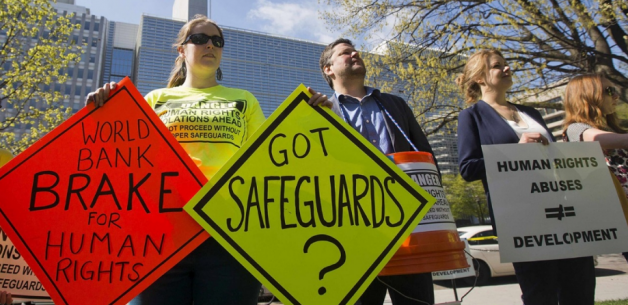In a letter sent this week to the World Bank, over 30 civil society organizations from around the world called for substantial revisions to draft guidance notes for the Bank’s new Environmental and Social Framework (ESF). The ESF replaces the Bank’s longstanding safeguards, and represents a major shift from a rules-based system to one characterized by unprecedented flexibility.
The guidance notes were written to provide additional detail for borrower countries to implement the new standards, and were billed as an opportunity to address many of the concerns expressed by civil society throughout the process of developing the ESF. Those objectives, according to the signatories of the letter, were not achieved in these drafts. “Rather than provide much needed clarity, the draft notes introduce more vague language and new loopholes that could be exploited to the detriment of communities and the environment,” said Jolie Schwarz, Senior Policy Advisor at Bank Information Center.
One of the strengths of the new ESF is the sharper focus it brings to social harms associated with Bank projects. According to Rachel Burton, Campaign Manager at BIC, “We welcomed the inclusion of language on disadvantaged and vulnerable groups in the ESF, but without detailed information on who these groups are, how to ensure differentiated impacts are identified and mitigated, and how to accommodate and meaningfully include these groups in consultations and stakeholder engagement, the notes fail to provide a clear, detailed road map on how to implement it.”
The letter to Manuela Ferro, the Vice President for Operations Policy and Country Services, questions how the draft notes can contribute to strengthening borrower systems–another key objective of the ESF–and asks for another opportunity for public comment. “In many of the Bank’s borrowing countries, closing civil society space hinders meaningful engagement around development programs. As the World Bank is increasingly involved in fragile and conflict-affected states, it must provide more practical detail for borrowers on how to engage with civil society and communities in a safe, meaningful, and inclusive way,” said Katelyn Gallagher, Campaign Manager at BIC.

